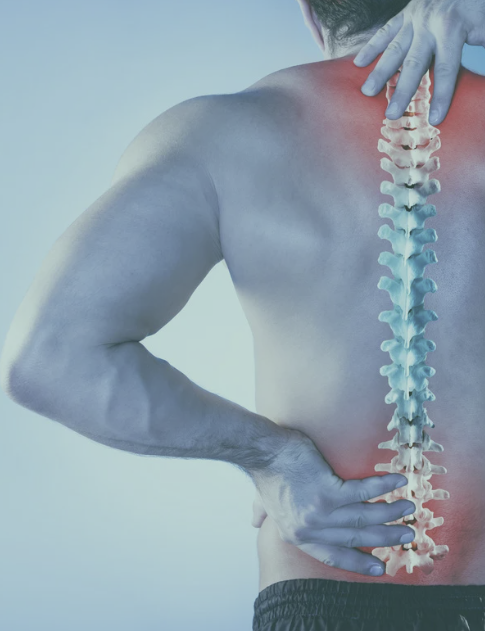Treatments for anxiety, depression, and more
– Over 65% of patients reported a significant reduction of symptoms*
– Get treatment from home without in-person appointments
– Connect with a provider within just a few days
– Affordable with or without insurance

01
Anxiety And Depression
Over 65% of Patients a Significant Reduction of Symptoms
02
Pain Medication
Our pain specialists offer a full range of outpatient evaluation and treatment options to understand, manage and reduce your pain,
03
Mental Health
Treatments that aim to help a person identify and change troubling emotions, thoughts, and behaviors.
Allow your body, mind and soul sense a haven of tranquility
Our Patient Reviews
What Are You Waiting For...
Make an appointment
Our Address
Skovorody St Lviv, Lviv Oblast, Ukraine
Opening Hours
24 * 7
Contact
Text now +13137635022 Whatsap: +5878919484
Comprehensive Guide to Fentanyl Powder: Usage, Dosage, Effects, and Warnings
Important Disclaimer: Fentanyl is an extremely potent opioid medication used in specific medical settings to manage severe pain. Its unauthorized use, purchase, or distribution is illegal and poses significant risks, including overdose and death. This content is for informational purposes only and should not be interpreted as advice or encouragement for non-medical use.
What is Fentanyl Powder?
Fentanyl powder is a form of the synthetic opioid fentanyl, used in medical settings for pain relief. It is exceptionally potent, being 50-100 times stronger than morphine and 30-50 times stronger than heroin. Due to its high potency, it is typically reserved for treating severe or chronic pain, such as cancer-related pain, and is only prescribed to individuals who are opioid-tolerant.
Medical Usage
Purpose:
- Severe pain management (e.g., post-surgical, cancer-related, or end-of-life care).
- Breakthrough pain in patients already receiving opioid therapy.
Dosage (Medical Context):
- Determined by a healthcare provider based on the patient’s condition, opioid tolerance, and overall health.
- Even microgram-level adjustments can have significant effects.
Forms of Administration:
- Fentanyl powder is not typically prescribed for home use but may be administered in controlled settings, such as hospitals.
Effects of Fentanyl Powder
Positive Effects (When Used as Prescribed):
- Rapid and effective pain relief.
- Provides comfort for severe and intractable pain conditions.
Negative Effects:
- Common side effects: Nausea, constipation, drowsiness, dizziness.
- Serious side effects: Respiratory depression, confusion, sedation, and loss of consciousness.
Overdose Risks:
- Symptoms include shallow breathing, pinpoint pupils, cold/clammy skin, and unconsciousness.
- Immediate medical attention is critical in suspected overdose cases.
Warnings and Precautions
Potency and Overdose:
- Fentanyl powder is so potent that even a small amount can cause fatal respiratory depression, particularly in individuals without opioid tolerance.
- It is not suitable for use in opioid-naive individuals.
Addiction and Dependence:
- Prolonged use or misuse can lead to physical dependence and addiction.
Interactions:
- Dangerous when combined with alcohol, sedatives, or other central nervous system (CNS) depressants.
Illicit Use:
- Fentanyl powder is a major contributor to the opioid crisis, often mixed with other drugs like heroin or cocaine without users’ knowledge.
- This has led to a significant increase in overdose deaths globally.
Where to Obtain Fentanyl Powder
Legitimate Sources:
Fentanyl powder is only available through licensed medical facilities or pharmacies with a prescription from a qualified healthcare provider.
Illegitimate Sources and Dangers:
- Purchasing fentanyl powder from non-medical sources (e.g., online marketplaces or street vendors) is illegal and extremely dangerous.
- Illicit fentanyl is often mixed with other substances, dramatically increasing overdose risks.
Safe Usage Guidelines
For Patients Prescribed Fentanyl:
- Follow the dosage instructions provided by your healthcare provider.
- Store securely and away from others, especially children.
- Dispose of unused fentanyl properly to prevent misuse.
Emergency Measures:
- Always have naloxone (Narcan) available if you or someone in your household is using opioids, including fentanyl.
- Learn the signs of overdose and administer naloxone immediately in an emergency.
Effects of Fentanyl Abuse
Physical Health Risks:
- Respiratory depression leading to hypoxia or death.
- Long-term organ damage due to oxygen deprivation.
Mental Health Risks:
- Depression, anxiety, and increased risk of suicidal thoughts.
Societal Impact:
- Strain on families, communities, and public health systems.
Seeking Help
If you or someone you know is struggling with fentanyl misuse or addiction, reach out for professional help. Treatment options include:
- Medication-Assisted Treatment (MAT): Methadone, buprenorphine, or naltrexone.
- Behavioral Therapy: Cognitive Behavioral Therapy (CBT) and support groups.
- Detoxification Programs: Supervised medical detox to ensure safety.
Hotline for Immediate Assistance:
- United States: SAMHSA’s National Helpline (1-800-662-HELP).
- Global Support Services: Contact your local health authorities or organizations specializing in addiction treatment.
Conclusion
Fentanyl powder is an essential tool in managing severe pain in medical contexts, but its potency makes it highly dangerous if misused. Only obtain fentanyl from legitimate, licensed sources under strict medical supervision. If you or someone you know is at risk of fentanyl misuse or overdose, seek help immediately. Remember, safety and education are the first steps toward prevention and recovery.
Comprehensive Guide to Pain Medication
Pain medications are essential for managing a variety of conditions, from acute injuries to chronic illnesses. Understanding the types, uses, benefits, risks, and guidelines for pain medications can empower patients to make informed decisions about their pain management.
Types of Pain Medications
Over-the-Counter (OTC) Pain Relievers
- Acetaminophen (e.g., Tylenol)
- Used for mild to moderate pain (e.g., headaches, muscle pain, fever).
- Gentle on the stomach but should not exceed recommended doses to avoid liver damage.
- Non-Steroidal Anti-Inflammatory Drugs (NSAIDs)
- Examples: Ibuprofen (Advil, Motrin), naproxen (Aleve).
- Effective for pain with inflammation (e.g., arthritis, menstrual cramps).
- Long-term use can lead to stomach irritation, ulcers, or kidney issues.
- Acetaminophen (e.g., Tylenol)
Prescription Pain Relievers
- Opioids
- Examples: Morphine, oxycodone (OxyContin), hydrocodone (Vicodin), fentanyl.
- Used for moderate to severe pain, especially post-surgery or in palliative care.
- Highly effective but carry risks of addiction, dependence, and respiratory depression.
- Muscle Relaxants
- Examples: Cyclobenzaprine, baclofen.
- Treat pain associated with muscle spasms or injuries.
- Antidepressants
- Examples: Amitriptyline, duloxetine (Cymbalta).
- Used for nerve pain, migraines, and chronic pain conditions.
- Anticonvulsants
- Examples: Gabapentin, pregabalin (Lyrica).
- Effective for neuropathic pain (e.g., shingles, diabetic neuropathy).
- Opioids
Topical Pain Relievers
- Creams, Gels, and Patches
- Examples: Lidocaine patches, capsaicin cream.
- Localized pain relief for arthritis, sprains, or minor injuries.
- Creams, Gels, and Patches
Adjuvant Medications
- Drugs not primarily designed for pain but help in pain management. Examples: Corticosteroids, ketamine.
Choosing the Right Pain Medication
Type of Pain
- Acute Pain: Often treated with OTC medications or short-term opioids.
- Chronic Pain: Requires a comprehensive approach, including prescription medications, physical therapy, and lifestyle changes.
- Neuropathic Pain: Best managed with anticonvulsants or antidepressants.
Importance of Pain Management
Pain management is a critical component of healthcare, benefiting both patients and medical professionals. Below are the key reasons why effective pain management is essential:
Improves Quality of Life
- Reduces discomfort, enabling patients to perform daily activities with greater ease.
- Helps individuals maintain independence and participate in work, family, and social activities.
Promotes Faster Recovery
- Managing pain effectively can improve healing by reducing stress and inflammation.
- Allows patients to engage in physical therapy or rehabilitation without excessive discomfort.
Enhances Emotional Well-Being
- Chronic pain is often linked to depression, anxiety, and emotional distress.
- Addressing pain helps reduce the psychological burden on patients.
Prevents Long-Term Health Issues
- Unmanaged pain can lead to chronic conditions or permanent changes in the nervous system, such as central sensitization.
- Helps avoid complications like sleep disturbances or weakened immunity.
Supports Patient Autonomy
- Gives patients control over their health and well-being by providing options to manage pain effectively.
- Encourages active participation in treatment plans.
Reduces Healthcare Costs
- Prevents emergency visits and additional treatments caused by unmanaged or escalating pain.
- Lowers the need for long-term reliance on medication or invasive procedures.
Minimizes Opioid Dependence
- Integrating diverse pain management strategies (e.g., physical therapy, counseling, non-opioid medications) reduces reliance on addictive painkillers.
Improves Compliance with Treatment
- Pain-free patients are more likely to follow medical advice, attend therapy sessions, and adhere to their care plans.
Tailored to Patient Needs
- Pain management plans can be personalized, considering the type, cause, and severity of pain, making treatments more effective.
Humanitarian Aspect
- Relieving pain is a fundamental aspect of compassionate and ethical healthcare, ensuring dignity and comfort for patients.
Effective pain management not only alleviates suffering but also plays a vital role in the overall health and recovery process. It is an essential part of holistic and patient-centered care





